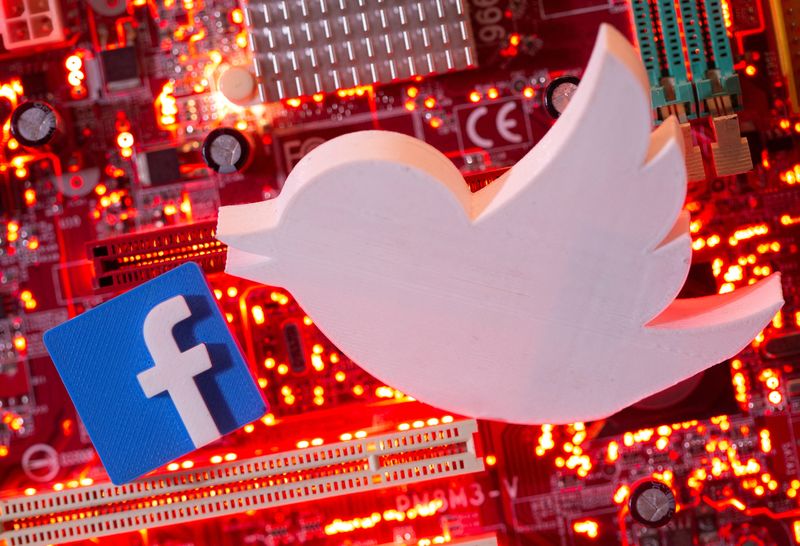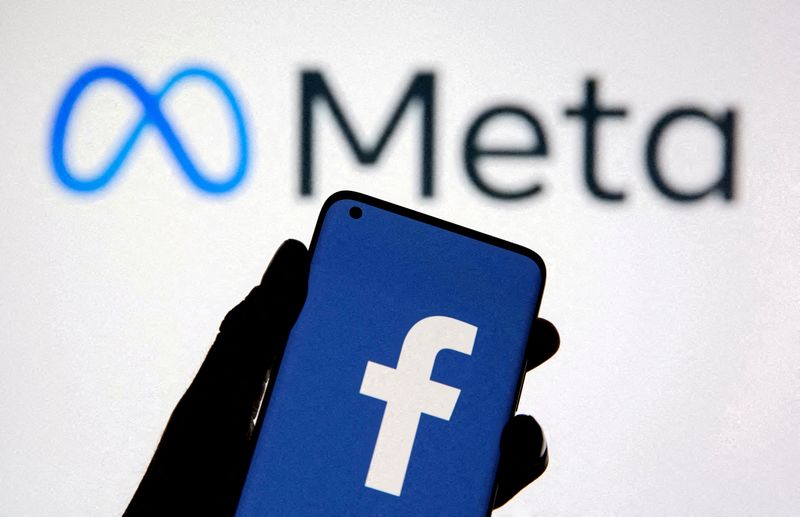By Aditya Kalra and Munsif Vengattil
NEW DELHI (Reuters) - U.S. lobby groups representing Facebook (NASDAQ:META) and Twitter (NYSE:TWTR) are concerned India's plan to form a government panel to hear appeals against content moderation decisions could lack independence, documents seen by Reuters show.
The proposed policy change is the latest flashpoint between India and technology giants which have for years said stricter regulations are hurting their business and investment plans.
It also comes as India clashes with Twitter in a high-profile spat, which recently saw the social media firm sue the government in a local court to revoke some content removal orders.
The June proposal mandates social media companies must comply with a newly formed government panel which will decide on user complaints against content moderation decisions. The government has not specified who would be on the panel.
But the U.S.-India Business Council (USIBC), part of the U.S. Chamber of Commerce, and U.S.-India Strategic Partnership Forum (USISPF), have both raised concerns internally, saying the plan raises worries about how such a panel could act independently if the government controls its formation.
The rules will create a Grievance Appellate Committee (GAC) "which is entirely controlled by the (IT) Ministry, and lacks any checks or balances to ensure independence," USIBC stated in an internal July 8 letter addressed to India's IT ministry.
"In the absence of industry and civil society representation, such GACs may result in over regulation from the government."
The new Indian proposal was open for public consultation until early July and no fixed date for implementation has been set.
Underscoring its concerns, USIBC noted that other countries like the European Union guarantee principles of "fairness and impartiality" in its appeal process, while a government-funded think tank in Canada recommends an "impartial dispute resolution" by a "disinterested professional body".
The other group, USISPF too expressed concern internally in one document dated July 6, questioning "how will its (panel's) independence be ensured."
Together, USIBC and USISPF represent top technology companies such as Facebook, Twitter and Alphabet (NASDAQ:GOOGL) Inc's Google - companies that often receive government takedown requests or carry out content review proactively.
USIBC, Facebook and Google did not respond to requests for comment, while USISPF and Twitter declined comment. India's IT ministry did not respond.
A senior Indian official told Reuters on Wednesday the government was open to not having an appeals panel if companies come together and form their own "fairly neutral" self regulatory system of addressing user problems.
"If they don't do it, government will have to. The panel is expected to operate independently," said the official.
Tension flared between India and Twitter last year when the company declined to comply fully with orders to take down accounts the government said were spreading misinformation. Twitter has also faced backlash for blocking accounts of influential Indians, including politicians, citing violation of its policies.
Other U.S. tech companies such as Mastercard (NYSE:MA), Visa (NYSE:V), Amazon (NASDAQ:AMZN) and Walmart (NYSE:WMT)'s Flipkart have had a host of issues with Indian policies on data storage, stricter compliance requirements as well as some foreign investment rules many executives say are protectionist in nature.[L3N2O618P]
The Indian government has said it was forced to announce the new rules in a bid to set "new accountability standards" for social media giants.
Without specifying which rights, the proposals also call for companies to "respect the rights guaranteed to users under the Constitution of India" as companies had "acted in violation" of such rights.

Both USIBC and USISPF note in their documents they believe fundamental rights in India can't be enforced this way.
"The fundamental rights are not enforceable against private companies ... The rule appears to be broad, and will be difficult to demonstrate compliance," USIBC said.
